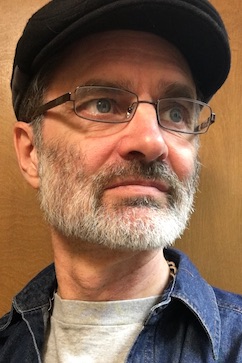Queer and Trans people of faith frequently hear that they cannot be Queer or Trans and be Christian, or that they cannot be Queer or Trans and be Muslim, or that they cannot be Queer or Trans and be Jewish. Our logical, philosophical, or theological arguments might not convince these naysayers, but our personal stories and our faith stories have the power to inspire people and to change lives and opinions.
Stories are powerful. We are people of story. We find stories in family, novels, biographies, film, music, television, and Sacred Scriptures. Stories play a key role in defining ourselves, our families, our faith traditions. I hope that by sharing stories, people can better understand how we can rebuild our houses of worship after Coronavirus-related restrictions on holding services are lifted.
Our stories have the power to help people understand how to live out the faith.
For example: I followed Rachel Held Evans on Twitter, without knowing much about her. She was an American Christian columnist, blogger, and author. According to Wikipedia, her book A Year of Biblical Womanhood was on The New York Times e-book non-fiction best-seller list.1 Christian bisexual activist Eliel Cruz tweeted this quotation of Evans after we learned Evans had died:
I thought God wanted to use me to show gay people how to be straight. Instead God used gay people to show me how to be Christian.2
Queer and Trans stories of faith can help communities of faith understand how to respond to changing community needs. My hope is that my sharing two stories today will inspire people of faith and people of principle to live in harmony with the spirit of the ancient rabbi Jesus.
A man on Twitter has the account @TweetChizone. He responded to a tweet asking, “What is the kindest thing a stranger has done or said to you?”
Oh God I can’t even tell this story and not cry. I used to manage an LGBT bookstore when bookstores were still a thing. One night, a caller says he thinks he might be gay and is considering self-harm. We were not a crisis center! But if we’re talking, he’s safe, right?3
So I talk to this guy and I answer questions, and I try to be encouraging and I’m maybe sounding a little frantic and I’m definitely ignoring the 4-5 customers in the store, and this angel of a woman puts her hand on my shoulder and asks for the phone. ‘My turn,’ she says.4
And SHE, this 50-something lesbian talks to this stranger on the phone. And a LINE FORMS BEHIND HER. Every customer in that store knows that call, knows that feeling, and every person takes a turn talking to that man. That story comforts me so much to this day.5
As people of faith, we can spontaneously form support groups, committees, and micro-communities of faith when urgent needs appear.
Stories of our faith in action can comfort and heal aching hearts.
Ken Wilson, the author of A Letter to My Congregation, tells a story of his daughter, Grace. His daughter was in a science class, which was taught by a devout Catholic teacher. A student asked the teacher what he thought of homosexuality. The teacher replied that homosexuality is morally disordered. Grace looked over and saw a boy, who identified as gay, starting to cry.
To Grace’s credit, she stood up and said, “Well, both of my parents are pastors, and I don’t know what they think about this, but I know that Jesus accepted all people!” Through tears, the teen said, “Grace, you’re my hero!”6 And that day Grace lived up to her name. That day, Grace became grace incarnate.
Today, my hope and prayer is that each reader of Whosoever will be grace incarnate, grace wrapped in flesh, the kind of grace that has people saying about them and about members of the Queer and Trans communities, “You are my hero.”
Footnotes
- Rachel Held Evans. Wikipedia. 15 May 2019, 17 May 2019.
- Rachel Evans cited by Eliel Cruz. Twitter. 05 May 2015, 05 May 2015.
- @TweetChizone. Twitter. 04 Mar 2019, 18 May 2019.
- @TweetChizone. Twitter. 04 Mar 2019, 18 May 2019.
- @TweetChizone. Twitter. 04 Mar 2019, 18 May 2019.
- Ken Wilson. A Letter to My Congregation: An Evangelical Pastor’s Path to Embracing People Who Are Gay, Lesbian, and Transgender in the Company of Jesus. (Canton, Michigan: Read the Spirit Books, 2014), 41.

A lifelong counselor, teacher and educator, having worked in elementary and secondary education for 25 years, Gary Simpson is a member of the Canadian Counseling and Psychotherapy Association and has spoken and led workshops on gay-straight alliances, bullying, spiritual self-defense, gay Christian identity, and the needs of GLBT youth and young adults.
Currently studying at Starr King School for the Ministry in Berkeley, Calif., he holds a B.Ed. from Union College in Lincoln, Neb., an M.A. in Guidance and Counseling and Ed.S. in Educational Psychology from Loma Linda University in Riverside, Calif., a Master’s in Religious Education from Newman Theological College in Edmonton, Alberta, and a Certificate in Sexuality and Religion from Pacific School of Religion in Berkeley, Calif.
